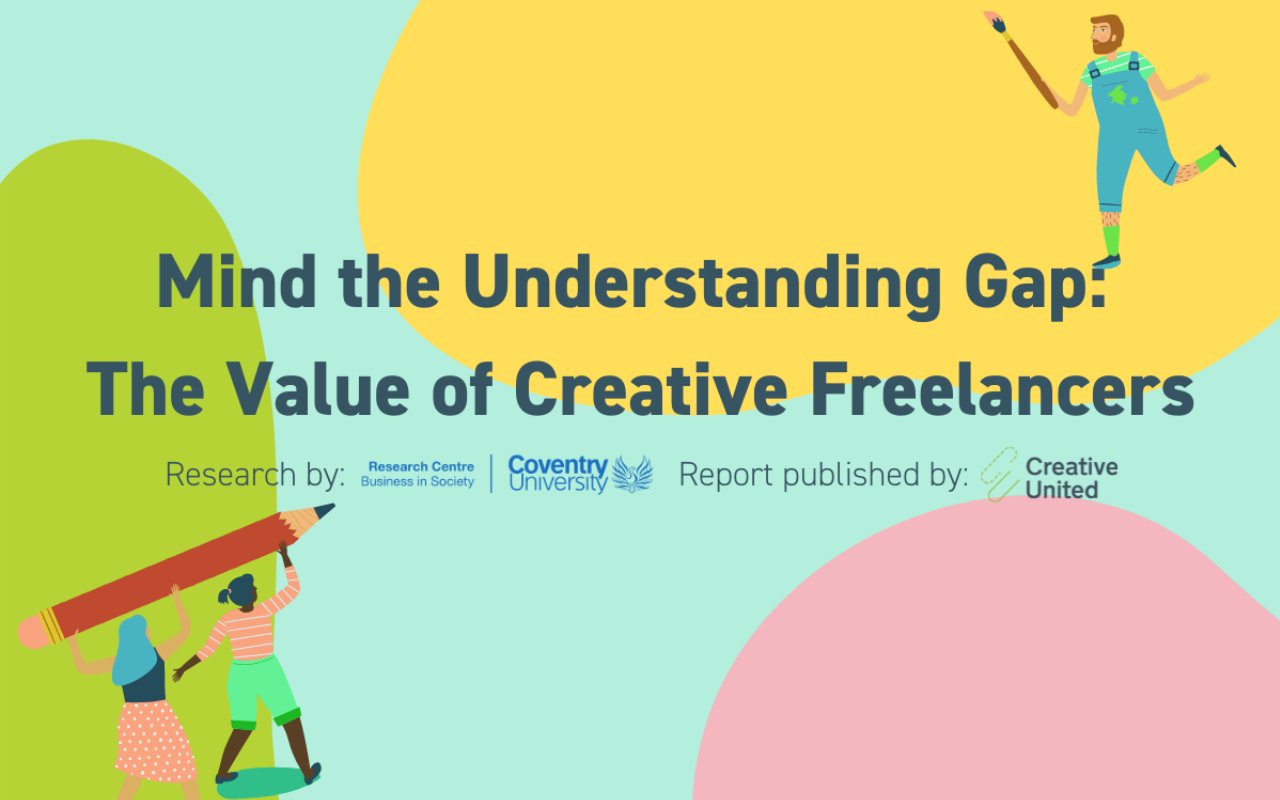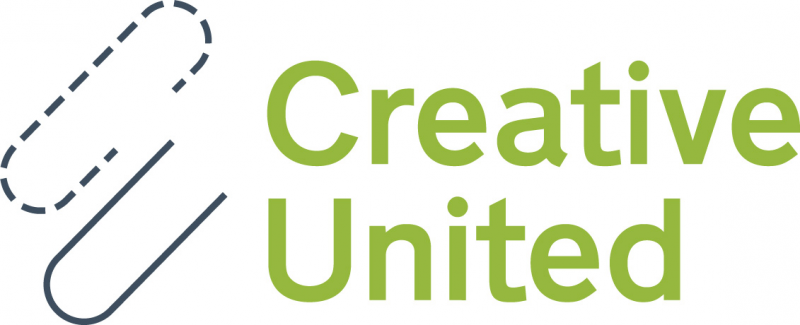
Mind the understanding gap: the value of creative freelancers
The self employed, including freelancers, make up almost a third of the creative industries workforce – double the rate across the UK more broadly. So why, asks Nick Henry and Mary-Alice Stack, is their role and contribution so poorly understood?
Such a lack of knowledge has been laid bare by the devastating impacts of Covid-19 on creative employment and freelancing, and the patchy support that freelancers have been able to access in response.
The term ‘creative freelancer’ has been widely used as a catch-all definition, encompassing a multitude of industry specific roles and eclectic modes of working. Long before the start of the pandemic, Creative United identified this as problematic and a significant barrier to providing appropriate and targeted support for self-employed workers across the arts and creative sectors.
As a social enterprise with a decade’s worth of experience in providing business support for arts, creative and cultural organisations, we at Creative United know how important it is for funders, policy makers and service providers alike to understand the value being generated by this exceptionally varied workforce community, and the characteristics that define their motivations and modes of working. That’s why we are excited to be launching our new report, Mind the Understanding Gap: the Value of Creative Freelancers.
Understanding place-based economies
Our aim is to build a policy environment – and expanded business case – that understands, values and responds to the creative freelancers of today’s place-based economies.
Although recent times have made a much broader audience aware of the contribution of ‘under-the-radar’ creative freelancers to our society and economy, they have also revealed the long running underinvestment and lack of understanding about how this sector works. Notwithstanding the largest economy-wide and sector specific interventions ever seen in most of our lifetimes, large numbers of creative freelancers have fallen through the structural cracks in support, and with far too much regularity.
The report is based upon over 100 hours of interviews undertaken in mid-2020 with 86 self-identified creative freelancers across Coventry, Northumberland and the London Borough of Waltham Forest. In these interviews the freelancers described their motivations, how they work, why they work that way and what it means for their business and personal lives – in short, their lived experiences as creative freelancers.
Defining value generation through a creative freelancer ‘typology’
Firstly, our report evidences the specific routes through which creative freelancers contribute significantly, and in a variety of ways, to our local and national economies, communities and culture. Taken collectively, their activities deliver entrepreneurship and market-making, self-development and well-being, the joy and buzz of shared cultural participation, and citizenship and community outcomes.
In today’s place-based policy frameworks especially, recognition of this richness of contributions and value, and understanding of how different freelancers generate such value, should attract greater levels of investment, funding and support.
Secondly, our typology of creative freelance models is proposed as a ‘ready reckoner’ way of understanding their diversity of value to economy, society and place. Built outwards from our interviews, the aim of this typology is to illustrate directly how creative freelancers deliver the contribution and value that investment seeks, to illuminate investment and funding rationales and open up new policy design possibilities for creative freelancers.
![]() Photo: Jasmine Chan
Photo: Jasmine Chan
There are six categories in this typology: Creative Entrepreneurs; Creative Contributors; Creative Work-Life Balancers; Precarious Projecteers; Creative Ecologists and Community Creatives.
Using this typology, we make 10 recommendations for national government, creative and cultural sector institutions, and local place-based policy makers which we hope will prompt active thinking around critical questions such as:
• How do you enable ‘Creative Entrepreneurs’ to succeed?
• What is the best way to support ‘Precarious Projecteers’ to improve their resilience?
• At what point could you boost the impact, in the most optimum way, for ‘Community Creatives’?
We believe the report is a must-read on why and how you might invest, fund and support the diversity that is creative freelancers; this critical – yet precarious – part of our much-lauded creative and cultural industries.
What next?
Creative United launched a decade ago as a social enterprise which believes in the power of the arts, culture and creativity as a force for good in society. As an ACE NPO and Sector Support Organisation we have developed our focus on addressing inequalities of opportunity by seeking to respond to the needs of the creative and cultural sector, supporting its economic growth and achievement of social impacts.
Our mix of consumer credit (Own Art, Take it away) and business support schemes (such as Prosper North, Forge and Re:Create 2021) support the sustainability, growth and diversity of production in these sectors whilst providing greater and more inclusive access to the products, services and experiences of arts and culture.
Alongside this work, we seek to achieve positive change by undertaking activity that evidences and enables the cultural, economic and social value of arts and creative enterprise to be more widely understood and supported by policy makers and investors.
Our greatest hope is that our proposed typology holds traction with creative freelancers; that they can see themselves in the report and that this closes the gap between their lived experiences and the funding and (design of) policy frameworks, programmes and projects. And that this greater understanding of the delivery of value by creative freelancers ensures that this critical and valuable infrastructure receives the investment and support to flourish, for the freelancers, our economy, communities and places.
Join the conversation/Does the report reflect you? #FreelanceFutures
Nick Henry is a Professor at Coventry University and Director at Creative United.
Mary-Alice Stack is the CEO of Creative United.
![]() creativeunited.org.uk
creativeunited.org.uk
![]() @CreativeUtdUK
@CreativeUtdUK
![]() @creativeuniteduk
@creativeuniteduk
![]() @creativeuniteduk
@creativeuniteduk
Mind the Understanding Gap: the Value of Creative Freelancers derives from research by Coventry and Warwick universities commissioned by Nesta’s Creative Industries Policy and Evidence Centre. It was produced in partnership with Creative United, Coventry City of Culture Trust, London Borough of Waltham Forest and Northumberland County Council. An extended Discussion Paper on the research was published as part of Creative Industries Policy and Evidence Centre Freelancer Fortnight.

This article is an advertising feature sponsored and contributed by Creative United.
Join the Discussion
You must be logged in to post a comment.